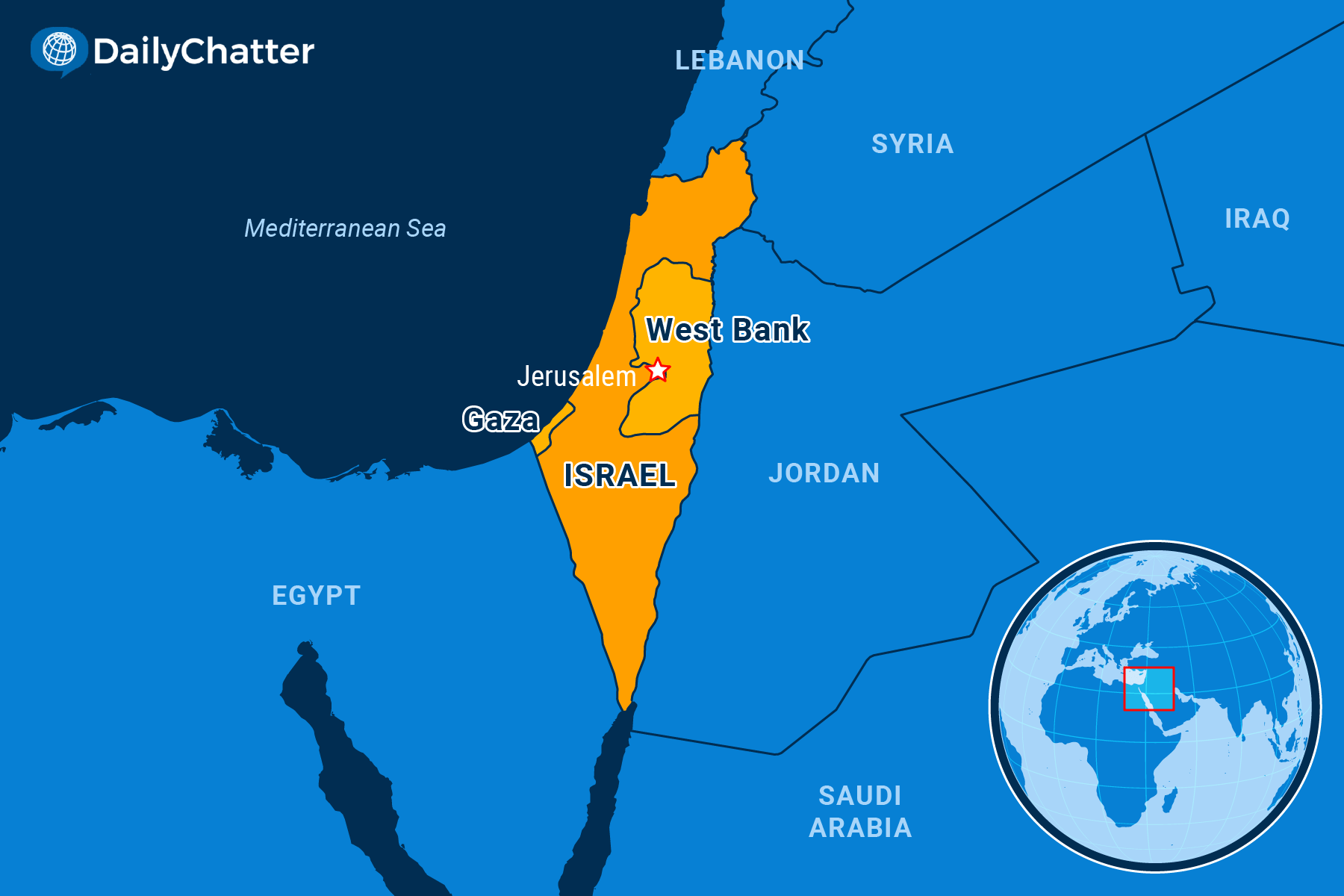The World Briefly
May 27, 2024A Matter of Interpretation
GazaIsrael

|
Listen to Today's Edition
|
Dozens of people were killed or injured in an explosion at a refugee camp in the southern Gazan area of Rafah, the BBC reported Monday, with the Israel Defense Forces saying it had targeted Hamas leaders in the compounds following a rocket barrage from the Gaza Strip into central Israel over the weekend.
The barrage was the first such attack in four months and just after the International Court of Justice (ICJ) ordered Israel to halt its military operation in the southern Gazan city of Rafah, CBS News reported.
On Sunday, Hamas’ military wing claimed the attack was in response to what it called “Zionist massacres against civilians.” The IDF identified eight rockets coming from Rafah, saying its air defenses intercepted most of them.
Sirens sounded across Tel Aviv and other cities for the first time in months, although there were no reports of casualties or damage, added NBC News.
Hamas has fired projectiles at areas around Gaza, but hasn’t used any long-range rockets in months.
The escalation follows a ruling by the top court Friday ordering Israel to “immediately halt its military offensive, and any other action in the Rafah governorate, which may inflict on the Palestinian group in Gaza conditions of life that could bring about its physical destruction in whole or in part.”
That ruling is part of South Africa’s case accusing Israel of genocide.
That case arose because of Israel’s response to the Oct. 7 attack by Hamas and its allies in southern Israel that killed around 1,200 people and saw more than 240 people taken hostage.
Since the attack, Israel has launched military operations in Gaza that have killed nearly 36,000 people, according to Palestinian health officials, and sparked a humanitarian crisis in the territory.
Meanwhile, Israel’s operations in Rafah have prompted international criticism, including warnings from its staunchest ally, the United States.
But the ICJ ruling became a matter of interpretation among Israeli officials, who argued that it does allow room for some military action, according to the Times of Israel.
The verdict, interpreted by four judges, instructed Israel to comply with the Genocide Convention during its activities in Rafah without stopping all military operations. A South African judge, however, argued that the ruling mandates a complete halt to offensive actions in Rafah. The remaining 10 judges did not provide opinions.
Israeli officials favored the interpretation that allows the continuation of military activities.
Israeli National Security Adviser Tzachi Hanegbi said Israeli forces are not committing genocide in the Palestinian enclave. When asked if the offensive would continue, he explained that international law allows Israel to defend itself and “the evidence is that the court is not preventing us from continuing to defend ourselves.”
The US has not explicitly commented on the verdict, while the United Kingdom and European Union officials suggested it required an end to the fighting. British officials criticized the ICJ’s intervention, saying it “will strengthen the view of Hamas that they can hold on to hostages and stay in Gaza.”
Although the court cannot enforce its orders, its verdict could prompt the UN Security Council to impose sanctions on Israel if a resolution for non-compliance is adopted.
Jordanian Foreign Minister Ayman Safadi urged the Security Council to ensure Israel halts its Rafah campaign.
Hebrew media reported that the US might demand concessions from Israel before vetoing any such motion, the Times of Israel added.
Not already a subscriber?
If you would like to receive DailyChatter directly to your inbox each morning, subscribe below with a free two-week trial.
Support journalism that’s independent, non-partisan, and fair.
If you are a student or faculty with a valid school email, you can sign up for a FREE student subscription or faculty subscription.
Questions? Write to us at hello@dailychatter.com.

